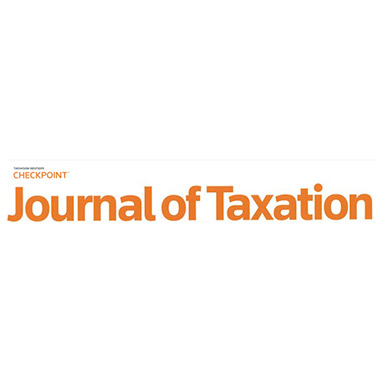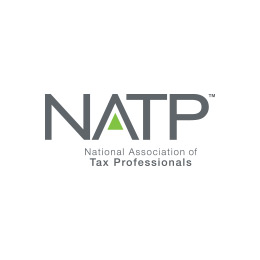If you have foreign pensions and retirement accounts, you will most likely need to report this income to the IRS. Failing to report foreign pensions can result in severe penalties that could cost you thousands.
The IRS has several reporting requirements depending on the type of accounts you possess. Because many of these reporting standards overlap, the process can be confusing. If you have foreign trusts, those too will also need to be reported in most cases. However, you have a few methods to get back on track if you have been non-compliant with your reporting responsibilities.
Call McCormick Tax Law today at (215) 630-0861 for a free case review with our attorneys for foreign pension reporting and penalties.
Understanding the Reporting Requirements for Foreign Pension Plans
Navigating the process of reporting foreign pension plans to the IRS is often less complex than initially thought. However, working with our attorneys for foreign pension reporting and penalties can help ensure that you do not fail to complete one of the many filing requirements placed on you. From a U.S. tax standpoint, the primary concerns revolve around the existence of a tax treaty and whether the plan is deemed qualified or not. The crucial aspect of reporting foreign retirement plans is determining which international information reporting forms must be submitted.
Suppose you have not filed in previous years and aim to achieve compliance. In that case, the U.S. government has established various international tax amnesty initiatives, such as the Offshore Voluntary Disclosure program, to help both willful and non-willful taxpayers.
In terms of reporting foreign pensions, there are four types of reporting to consider. Although foreign banks and financial account reporting (FBAR) and Foreign Account Tax Compliance Act (FATCA) are the most prevalent types, Passive Foreign Investment Companies and reporting trusts might also be necessary and tend to be more complex filings.
FBAR Requirements for Foreign Pension Plans
The FBAR involves reporting foreign banks and financial accounts. The Internal Revenue Service is notorious for levying penalties on unreported retirement accounts on the FBAR. However, even if you failed to report it in earlier years, the matter can typically be addressed without facing the maximum penalties. Suppose you possess a U.S. retirement plan, like a 401(k), containing foreign investment accounts or aggregated funds, like mutual funds and foreign ETFs. In that case, there is usually no obligation to file the FBAR for those particular funds/accounts under such circumstances.
The IRS cautions that not submitting an FBAR promptly and accurately may lead to penalties, fines, and possible criminal ramifications for taxpayers. If an infraction is considered non-willful, the penalty for each case typically cannot exceed $10,000. Bear in mind that this penalty can be imposed for every single violation.
Should a violation be determined as purposeful or willful, the penalty escalates to either $100,000 or 50% of the account balance during the infraction, depending on which value is higher. Furthermore, if the IRS establishes that an individual has engaged in a willful violation, they might encounter additional criminal consequences like a felony conviction.
FATCA Requirements for Foreign Pension Plans
FATCA stands for the Foreign Account Tax Compliance Act. Under this legislation, US taxpayers must disclose their foreign financial accounts and assets to the Internal Revenue Service directly on their tax return using Form 8938, including foreign retirement plans.
In cases where filing Form 8938 is mandatory, you must report both retirement and pension accounts, as well as nonretirement savings accounts. Consequently, these accounts adhere to consistent reporting regulations and must be declared irrespective of whether the account is held in a jurisdiction that has an inter-governmental agreement. Failure to comply with the FATCA requirements can result in similar penalties as those mentioned when failing to comply with FBAR requirements.
PFIC Requirements for Foreign Retirement Plans
PFIC refers to the requirements for Passive Foreign Investment Companies, which are considerably more complex than FBAR or FATCA filings. The requirement to report a foreign retirement plan containing PFIC on Form 8621 depends on the applicability of the PFIC treaty exception. If this exception is applicable, Form 8621 is typically not necessary, although there are instances when it must still be reported. Determining your responsibilities under PFIC reporting requirements will usually involve a thorough analysis of your case.
Your Duty to Report Foreign Trusts
A duty to report foreign trusts is often a confusing process for many retirees since it is not as straightforward as the previous filings mentioned. Forms 3520 and 3520-A were created to enable US individuals to disclose foreign trusts to the IRS. From a technical perspective, a foreign retirement plan is regarded as a trust.
Foreign pension plans frequently do not qualify as employment trusts and, as a result, are not automatically exempt from Form 3520 reporting. It is likely that when the Internal Revenue Service devised Forms 3520 and 3520-A, it did not aim to mandate the reporting of foreign pension plans. Furthermore, in 2020, the Internal Revenue Service issued Revenue Procedure 2020-17, which exempts specific reporting of foreign retirement and non-retirement deferred tax plans from Forms 3520/3520-A. The uncertainty arises from the procedure’s lack of clarity regarding which retirement plans must be reported and which are exempt.
Civil penalties are imposed for not filing either Form 3520 or Form 3520-A. If a US individual fails to submit Form 3520 on time, they may face civil penalties based on the higher of $10,000 or 35% of the amount in question, which can be determined by the trust’s value, the contribution to the trust, or the distribution from the trust. Furthermore, if an individual neglects to file Form 3520-A, they could be liable for civil penalties exceeding $10,000 or 5% of the amount contained in the trust.
How to Get Back into Compliance for Failing to Report Your Pension Plans
At one point, the IRS established a policy that offered protection to taxpayers who willingly admitted to submitting incorrect or deceptive information on their tax returns. These individuals could steer clear of criminal responsibility by paying their due taxes along with interest and penalties. The Offshore Voluntary Disclosure Program (OVDP) was launched to support this initiative, enabling taxpayers who had not previously reported their pension accounts to self-disclose the information they ought to have provided. Unfortunately, this amnesty program came to an end in 2018.
Presently, you can choose to disclose both foreign and domestic pension plans via the voluntary disclosure program (VDP). While this option has certain advantages, such as bypassing criminal charges, the associated fines may be considerable.
Our Attorneys for Foreign Pension Reporting and Penalties Can Help
For a free evaluation of your foreign pension responsibilities, speak with our attorneys for foreign pension reporting and penalties at McCormick Tax Law at (215) 630-0861.










